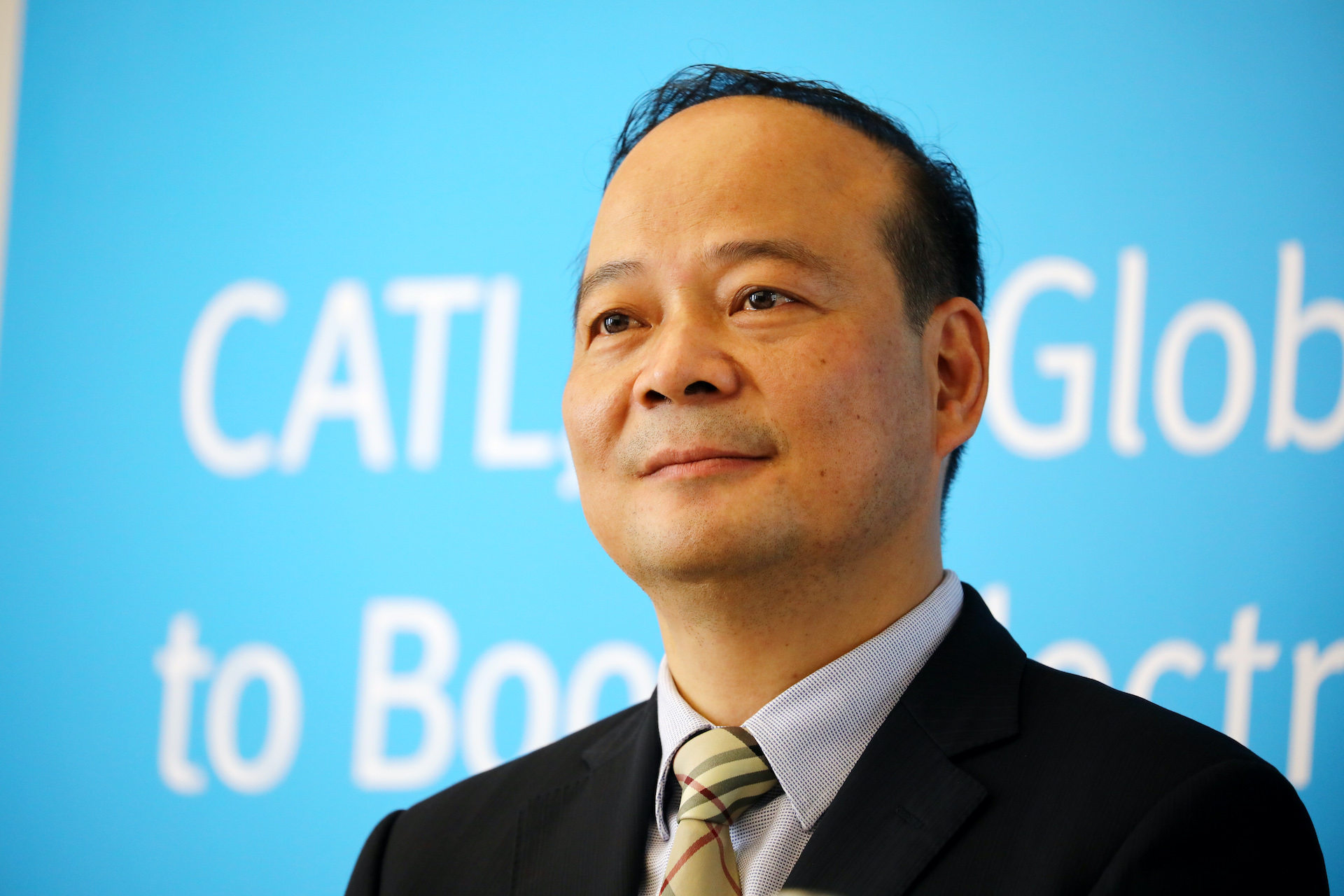Faced with CATL battery dominance, U.S. trade experts mull a China-like tech transfer
Battery giant CATL is looking to expand in the United States. Washington might grant approval — on the condition that CATL shares its tech.

Contemporary Amperex Technology (CATL), the world’s largest battery maker, is scouting locations for a new $5 billion battery plant in the U.S., per Bloomberg. But as the Tesla supplier’s acclaim rises around the globe, U.S. trade experts are mulling a tech transfer program akin to the one employed by China with the West.
- CATL has expanded feverishly in the past few years. With the cheapest lithium-ion batteries on the market, the company supplies many of the world’s up-and-coming EV players, including BMW and Volkswagen, as well as Chinese upstarts NIO, Xpeng, and Aiways. CATL has plants all over China and one in Germany.
- CATL has recently made an expansion into North America. In one conventional view, U.S. policymakers should feel threatened by China’s flagship battery maker given the current state of technology competition.
- But a U.S. trade expert told Bloomberg that CATL’s entry in the U.S. is fine as long as the company brings along its manufacturing know-how. “The principle would be largely the same: We’ll give you market access, and in exchange, you have to transfer tech to us and our people,” he said.
China news, weekly.
Sign up for The China Project’s weekly newsletter, our free roundup of the most important China stories.
The context: One of the most acrimonious issues in U.S.-China relations is China’s long-standing practice of forcing Western companies to give up their tech — via a joint venture, for example — in exchange for market access. China’s accession to the WTO in 2001 should have made quid pro quo practices illegal, but technology transfers continued unabated.
- There are other reasons for the U.S. to welcome CATL: The company’s entrance could create tens of thousands of jobs, offset a U.S. battery supply-chain shortage, as well as supercharge long-term EV adoption.
- U.S. battery startups, which could theoretically be snuffed out by CATL’s entrance, don’t seem too worried: One battery maker told Bloomberg that piggybacking off a giant buyer could make it easier and cheaper for his company to get much-needed supplies.
The takeaway: That U.S. trade specialists are now openly considering similar tactics in response to CATL indicates a marked turnaround from what was formerly a lopsided technology relationship between two of the world’s biggest economies.
“Is the shoe now on the other foot?” quipped the official Twitter account of Sino Auto Insights, a Beijing-based consultancy.






